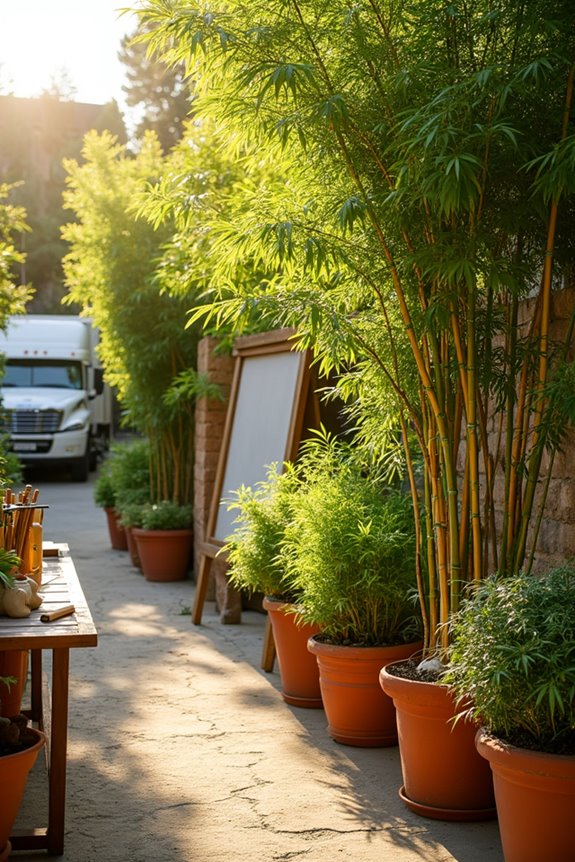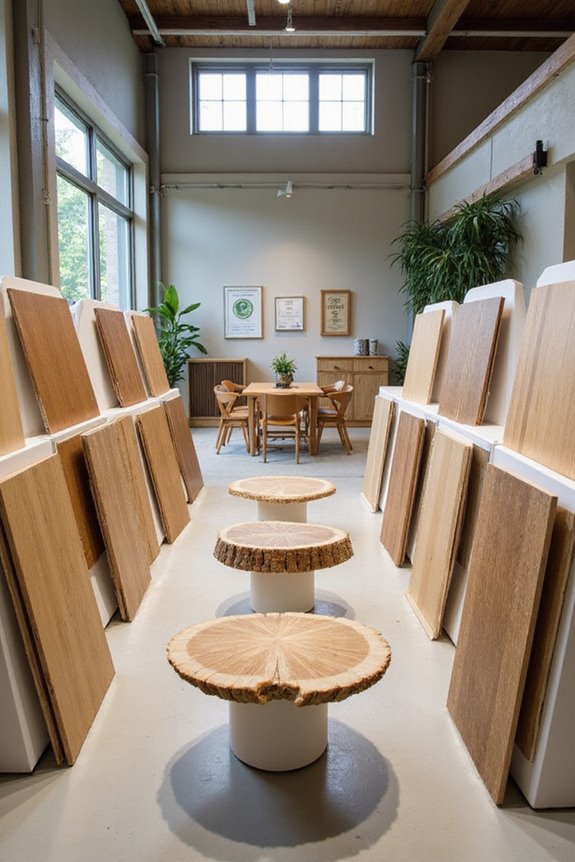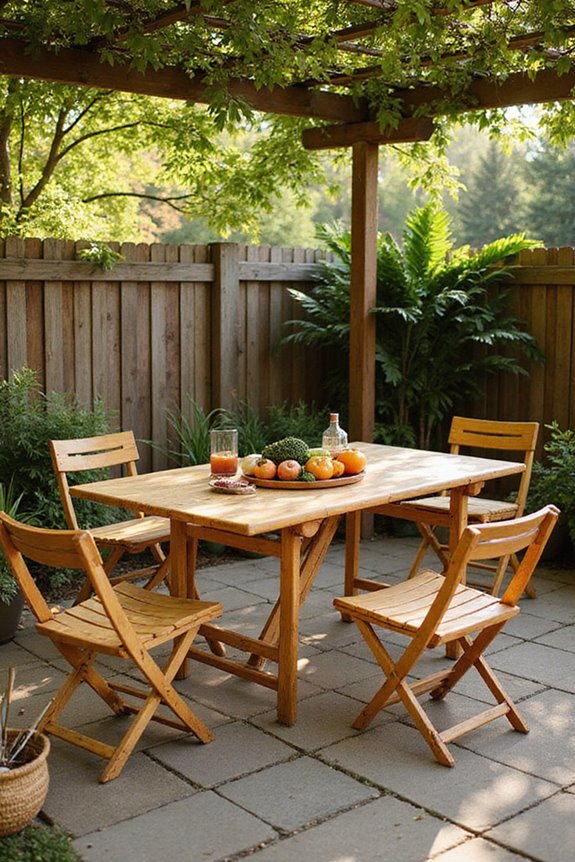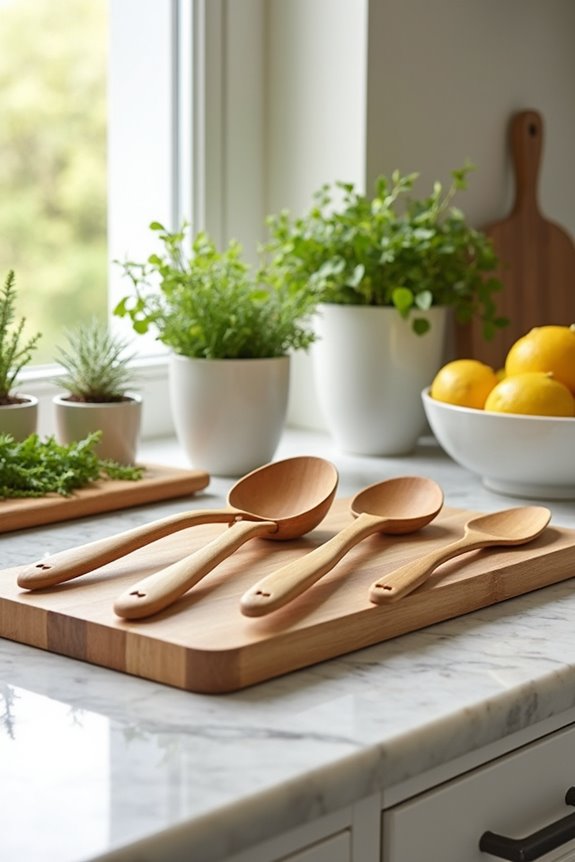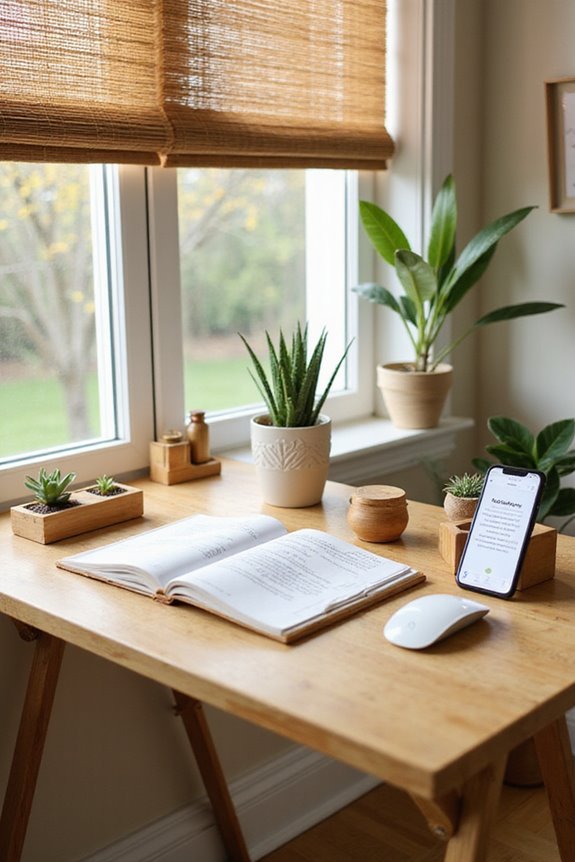To find local bamboo suppliers, we can take several effective steps. First, we can check regional directories or specialized nurseries, like Tropical Bamboo Nursery in Florida. Next, we should assess supplier expertise by looking for certifications and a range of bamboo products. Utilizing online maps for nearby options and attending local gardening events can help too. By exploring these avenues, we can connect with reliable suppliers and enhance our bamboo knowledge for our projects. More insights await us ahead!
Key Takeaways
- Utilize online search engines and directories like Google and Yelp to locate nearby bamboo suppliers with customer reviews.
- Attend local garden shows and workshops to interact directly with suppliers and explore their offerings.
- Join online gardening forums or clubs for personal recommendations on trusted bamboo suppliers in your area.
- Verify supplier reliability by checking for certifications and requesting product samples before making a purchase.
- Engage with community resources, such as the American Bamboo Society, for networking and supplier directories.
Identifying Regional Bamboo Nurseries
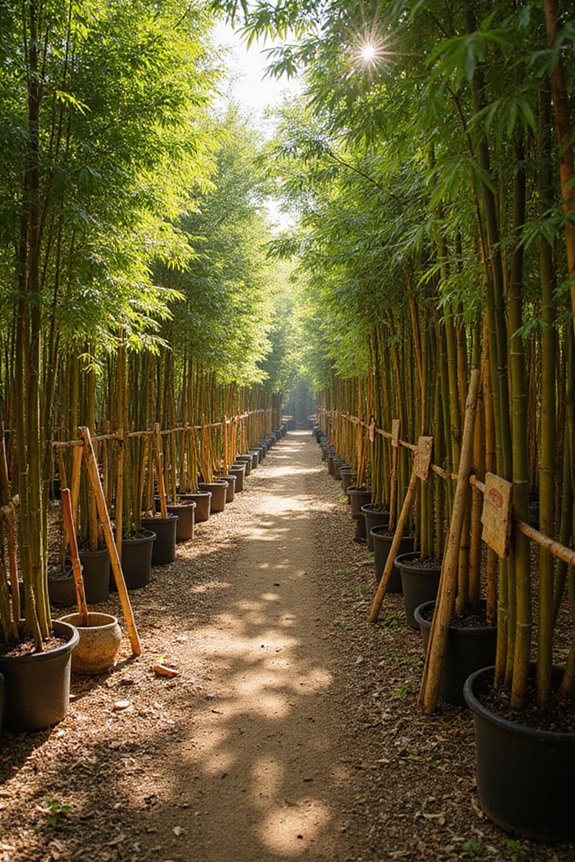
When we set out to find local bamboo suppliers, identifying regional bamboo nurseries is our first step. We can start by checking regional business directories and agricultural listings specific to our state or county. Specialty nurseries, like Tropical Bamboo Nursery & Gardens in Florida, often highlight their locations for easy access.
Next, we should explore family-owned farms, such as Thigpen Trail Bamboo Farm in Georgia, which focus on climate-adapted bamboo species. Additionally, we can utilize online resources like “Our Bamboo Nursery” in Summertown, Tennessee, to locate more nursery options. By prioritizing nurseries that offer bamboo species suited to our local ecosystem, we guarantee a successful planting experience. Furthermore, selecting high nitrogen fertilizers available at these nurseries can significantly enhance the growth of your bamboo plants.
Researching Supplier Expertise and Product Range
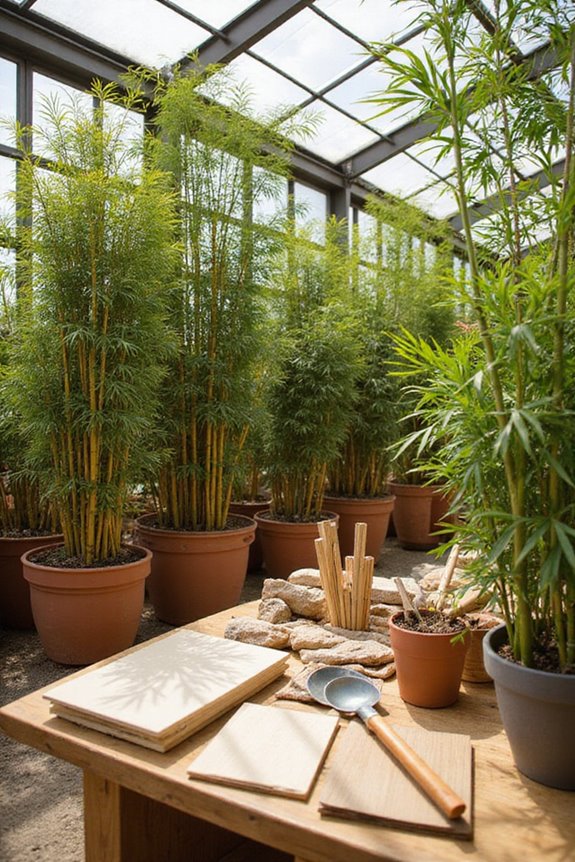
Researching supplier expertise and product range is essential once we identify local bamboo nurseries. We should look for suppliers with relevant certifications that guarantee bamboo quality. Their knowledge of species variations can help us choose the right bamboo for our needs, whether for construction or décor.
- Supplier Expertise
- Understands structural properties like tensile strength.
- Knows sustainable harvesting methods.
- Offers diverse bamboo applications.
- Extensive catalogs with various bamboo types.
- Sizes and forms for different uses, including raw poles and finished products.
- Tailored products based on specific customer requirements enhance our options. Additionally, suppliers should be familiar with different bamboo species variations to help us select the best fit for our projects.
Methods to Locate and Contact Local Bamboo Suppliers
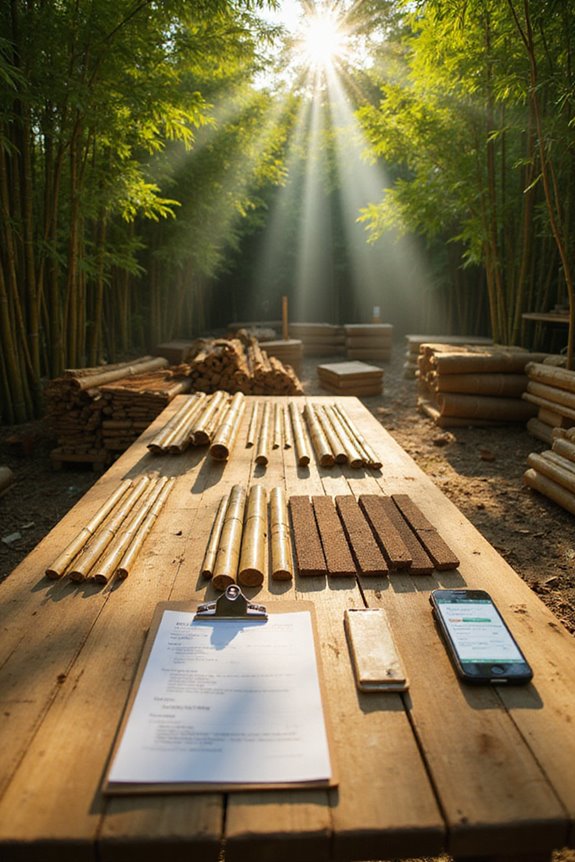
How can we efficiently find and connect with local bamboo suppliers? We can start by using online search engines like Google and business directories such as Yelp. Specialty websites and industry-specific directories often have valuable information on bamboo propagation techniques and sustainable bamboo practices.
- Utilize Maps: Google Maps or Apple Maps can help us locate nearby suppliers with reviews and contact info.
- Attend Events: Local garden shows and workshops are great for meeting suppliers face-to-face.
- Engage Communities: Joining online gardening forums or clubs can lead to personal recommendations.
- Contact Suppliers: Directly reach out through their websites or social media for inquiries. Additionally, consider looking for suppliers who offer Giant Bamboo Seeds as they are popular for quick-growing privacy screens.
Assessing Supplier Reliability and Service
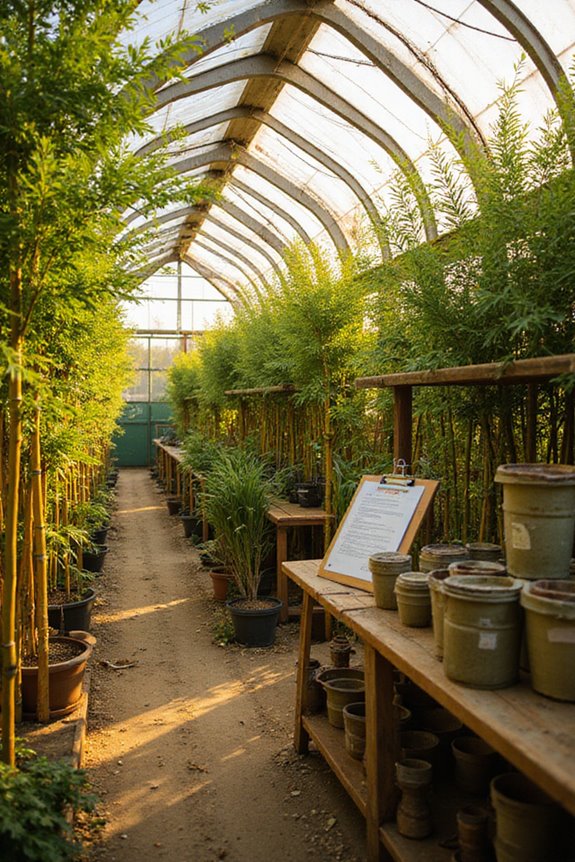
Evaluating supplier reliability and service is essential for guaranteeing we partner with the right bamboo suppliers. First, we should verify supplier certifications, like FDA approval or SGS test reports. These certifications confirm that products meet safety and environmental standards. Next, we must prioritize quality inspections. Reliable suppliers conduct continuous inspections to prevent defects and guarantee product durability.
Moreover, we can request product samples to assess quality firsthand before making a purchase. Additionally, we should evaluate customer service by checking after-sales policies and communication channels. Quick responses to our inquiries show a supplier’s commitment to supporting our needs. By considering these factors, we can build strong, lasting partnerships with dependable bamboo suppliers. Furthermore, we should ensure that the suppliers provide FSC certified products, as this indicates responsible sourcing and adherence to sustainable practices.
Supplier Specialization for Local Conditions
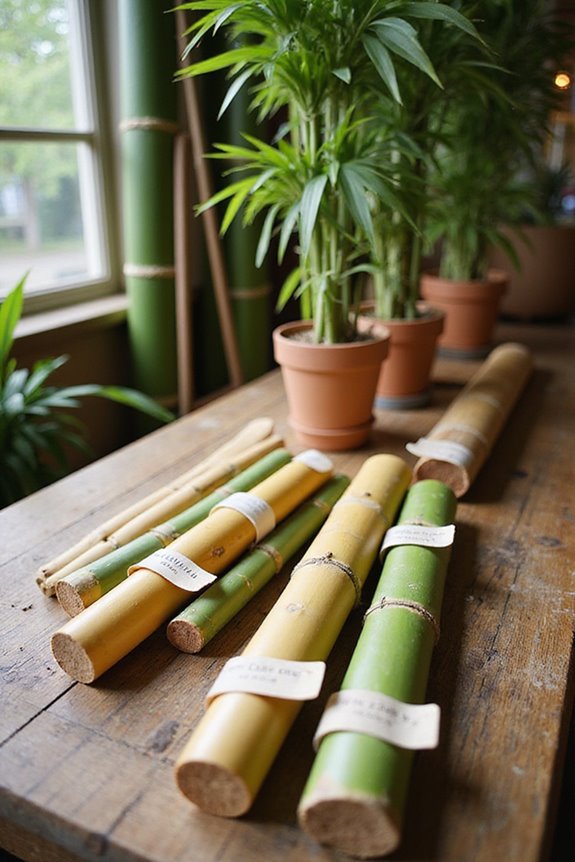
When choosing a bamboo supplier, it’s essential to take into account their specialization in local conditions. Local suppliers often understand climate-adapted bamboo species far better than general resellers or big box stores. This knowledge leads to better species selection, ensuring healthy growth and longevity for your projects.
- Supplier Benefits: Specialty suppliers can provide tailored advice about local soil and climate, minimizing the risk of crop failure.
- Species Selection: They help match bamboo types like Moso or Giant bamboo to specific uses, whether it’s for construction or edible shoots.
- Consultation Services: Many offer consultations to guide new growers, increasing success rates. Additionally, they can recommend clumping bamboo plants that are perfect for your tropical garden transformation.
Exploring Online Directories and Trade Platforms
In today’s digital age, where can we find reliable bamboo suppliers? Exploring online directories and trade platforms can be a game-changer for us. These specialized B2B portals connect us with a wide range of bamboo suppliers, manufacturers, and wholesalers.
- Online Platform Benefits: We can easily locate suppliers by region and product type.
- Supplier Communication Tools: Many platforms offer secure messaging for vetting and completing transactions efficiently.
Additionally, we can access user reviews to evaluate supplier reliability and quality. Some directories also categorize suppliers based on specialization, making our search targeted. By embracing these online resources, we can streamline our sourcing process, ensuring we find the best local bamboo options available.
Visiting Local Botanical Gardens and Arboretums
Visiting local botanical gardens and arboretums can greatly enhance our search for bamboo suppliers. These spaces often feature extensive collections, like the San Diego Botanic Garden’s Bamboo Garden, which boasts over 100 species. By participating in botanical garden tours, we can learn about sustainable sourcing and cultivation practices for bamboo.
Additionally, these gardens play an essential role in plant conservation initiatives. They conserve many socio-economically important plants and share seeds through exchange programs, increasing supplier diversity. We can also benefit from their detailed records, which help verify the origins of bamboo. Engaging with these gardens not only deepens our understanding of bamboo but also connects us with local conservation efforts and knowledgeable individuals in the community. Furthermore, the variety of bamboo species available in these gardens can inspire our selections based on growth rate and climate adaptation.
Engaging With Local Farmers’ Markets and Horticulture Fairs
How can we connect with local bamboo suppliers effectively? Engaging with local farmers’ markets and horticulture fairs is a great way to start. Here’s how:
- Visit Farmers’ Markets
- Many feature local growers specializing in bamboo.
- We can assess bamboo species and quality firsthand.
- These events showcase bamboo cultivators and innovations in sustainable practices.
- We can interact directly with experts and learn about market trends.
- Regular vendors can provide consistent bamboo supplies.
- Knowledge exchange about bamboo growing methods is invaluable.
Networking With Landscaping Associations and Community Programs
Networking with landscaping associations and community programs can greatly enhance our connections to local bamboo suppliers. By joining groups like the American Bamboo Society, we gain access to valuable resources. These associations often host events, workshops, and directories that list trusted bamboo growers nearby.
- Community Engagement: Local sustainability programs often feature bamboo, helping us connect with certified growers.
- Networking Strategies: Attending trade shows lets us meet suppliers directly and learn about their offerings.
- Online Resources: Many associations provide searchable directories and forums where we can ask about bamboo availability.
Together, these connections foster a stronger network and increase our chances of finding reliable bamboo suppliers for our landscaping projects.
Frequently Asked Questions
What Are the Best Bamboo Species for Small Gardens?
As we envision a tranquil garden oasis, we find that dwarf bamboo, like Pleioblastus fortunei, and ornamental bamboo varieties enchant us with their beauty, creating cozy spaces where nature embraces us, inviting harmony and serenity.
How Do I Care for Bamboo Once Planted?
To care for our bamboo, we should follow some bamboo maintenance tips. A proper bamboo watering schedule is key—let’s keep the soil damp, mulch generously, and prune regularly for vibrant, healthy growth together!
Are There Bamboo Varieties That Attract Wildlife?
Imagine a thriving bamboo forest, teeming with life—these bamboo habitats attract diverse wildlife, offering shelter and food. We can embrace this ecological wonder, nurturing connections between plants and animals for enriching experiences and sustainable benefits.
Can Bamboo Be Grown in Pots or Containers?
Absolutely, we can grow potted bamboo through container gardening! It allows us to enjoy its beauty in limited spaces. With proper care, like choosing the right container and soil, our bamboo will thrive beautifully.
What Common Pests Affect Bamboo Plants?
As we stroll through our bamboo gardens, we must stay vigilant against common pests like spider mites and aphids. With proper pest control, we can combat these threats and protect our cherished plants from diseases.

